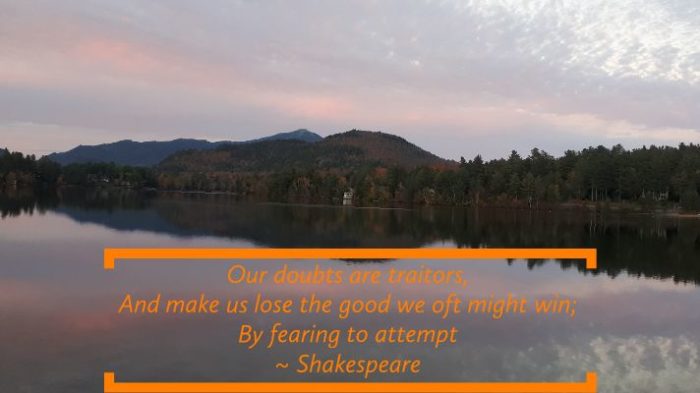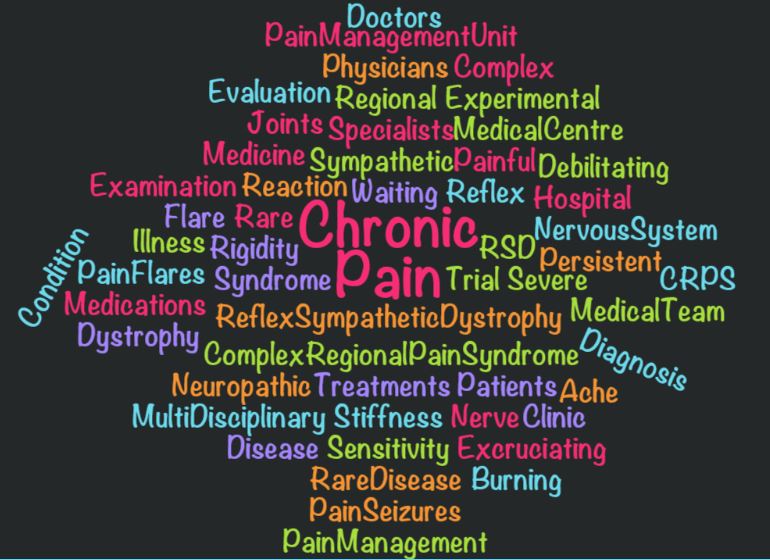For a few months I’d been lurking on the rare disease, chronic pain, and CRPS communities on Twitter (you can read about that here). I would read the tweets, or micro-posts, written by people who have the same rare disease that I do.
Even without any actual interaction, it was a way to feel less alone with this challenging medical condition. CRPS, by the way, stands for Complex Regional Pain Syndrome. You might also see it referred to by its old name, Reflex Sympathetic Dystrophy (RSD).
During this lurking phase, I didn’t publicly acknowledge that I had CRPS myself. I wasn’t ready, I suppose. As with any rare illness, there are so many unknowns for patients with CRPS. I was still very hesitant to admit, in public, that I had this nasty disease.
Part of the reason for this reluctance to admit that I had CRPS was fear for my future. How long would it take to get rid of this disease? Would there be any negative impact on my dream job, in the meantime? Could CRPS have any repercussions on my long-term goals and plans, or on my husband?
I’d finally landed my dream job just prior to beings diagnosed with this disease, and I wasn’t certain that I wanted all of my colleagues to know that I had this condition. I work in healthcare, which means that all of my coworkers do as well. It was likely that some of them would read up on this condition, with good intentions…
Which would invariably lead to having folks ask me about the disease at work. Asking whether I’d tried this treatment or that treatment, why my doctors hadn’t tried X, Y, or Z. That’s a level of detail that I wasn’t comfortable discussing with my colleagues.
Although I wasn’t ready to publicly state that I had CRPS, I did reach out to a few patients with CRPS. Twitter has a direct messaging feature, so it was fairly easy to contact others. I was already writing blog posts about my patient journey, as a form of therapy – for myself.
I’d been blogging about bioethics, my field, since 2007 so it was natural for me to turn to this medium to document my new ‘patient life’. One of my Twitter connections urged me to share these posts with a small group of CRPS patients, so I set up a password-protected section of my blog.
The comments I received, after sharing my posts, were phenomenal. They told me that no one else was writing about this disease the way I do, from a place of happiness. Each and every one of these patients urged me to share my posts with everyone – to make them public.
I’m an optimist at heart, someone who finds beauty and joy in every day – sometimes in unexpected moments. And they told me that this was so often missing in posts about this disease. As an example, my post about finding a way to do something that’s important to my sense of self; cycling with one hand.
The idea that my story, my patient journey, might help someone else is what finally convinced me to move ahead. So on CRPS Day this year I made all my posts on CRPS public. With any luck, I’ll be able to help others with CRPS, or even with other chronic pain or rare conditions.
In much the same way that those first posts on CRPS, which I’d found on Twitter, had helped me feel connected to a patient community. There was a piece missing, though, and that was to actually come out on social media and admit that I had CRPS.

I hadn’t thought much about how to that, and it turned out to be something very natural. For well over a year I’d been participating in a weekly Twitter chat, which has a true community vibe. This is largely due to the moderators, as well as to the number of regular members.
It’s the #HCLDR tweet chat, “a strong and vibrant online community of people who all share a passion for improving healthcare. Our community includes patients, physicians, nurses, CEOs, IT folks, caregivers, policy makers and students from countries such as Canada, USA, Philippines, Ireland, Australia, New Zealand, Singapore, UK and South Africa.”(1)
One evening during that chat, a comment or question came up about patient experience. I can’t recall what the tweet was about, or who posted it. But I do recall replying that I’d recently been dealing with a rare disease myself, and that I’d struggled to have my symptoms taken seriously – and then to obtain a diagnosis.
The response from so many members of this Twitter community was instantaneous, and very supportive. The next day I began joining conversations on Twitter about CRPS/RSD.
It didn’t take me long to realize that, because I live near a large city with medical schools, health centres, and affiliated teaching hospitals, I sometimes have access to care that simply isn’t available to patients in other areas.
Some of these folks have since reached out to me for treatment details, which they’d bring to their healthcare providers for discussion. Some have been referred to healthcare centres that offer these procedures.
In three cases – so far – these patients have experienced improvement in their symptoms. They’ve each told me that this was because of my blog posts. One lady had been off work for almost a year, and was able to go back to work part-time.
Two others, in two different countries on two different continents, have told me that they were able to obtain diagnoses – and medical treatment – for CRPS based on information that I’d provided in this blog.
It’s been very rewarding to be able to help others, and I think this has helped me come to terms with this disease. I still hope that my CRPS will spontaneously resolve, but am starting to accept that this may not be a realistic expectation.
My background in bioethics and the protection of patients’ personal health information taught me to never share medical information in public. Being a rare disease patient taught me that sometimes the possibility of helping others is more important that protecting one’s own medical information.
That being said, it’s important to consider the risks before you share any information of this nature. There can be issues, for example, in obtaining health insurance in the US.
As with everything else in healthcare, it’s largely up to the individual patient to make an informed decision. Mine was to go public, to share my diagnosis and my patient journey. If you’d prefer to retain you privacy, I fully support that choice as well.
Either way, feel free to leave a comment here or to reach me on Twitter. Thanks for reading! Wishing you a day filled with moments of joy ‘-)

